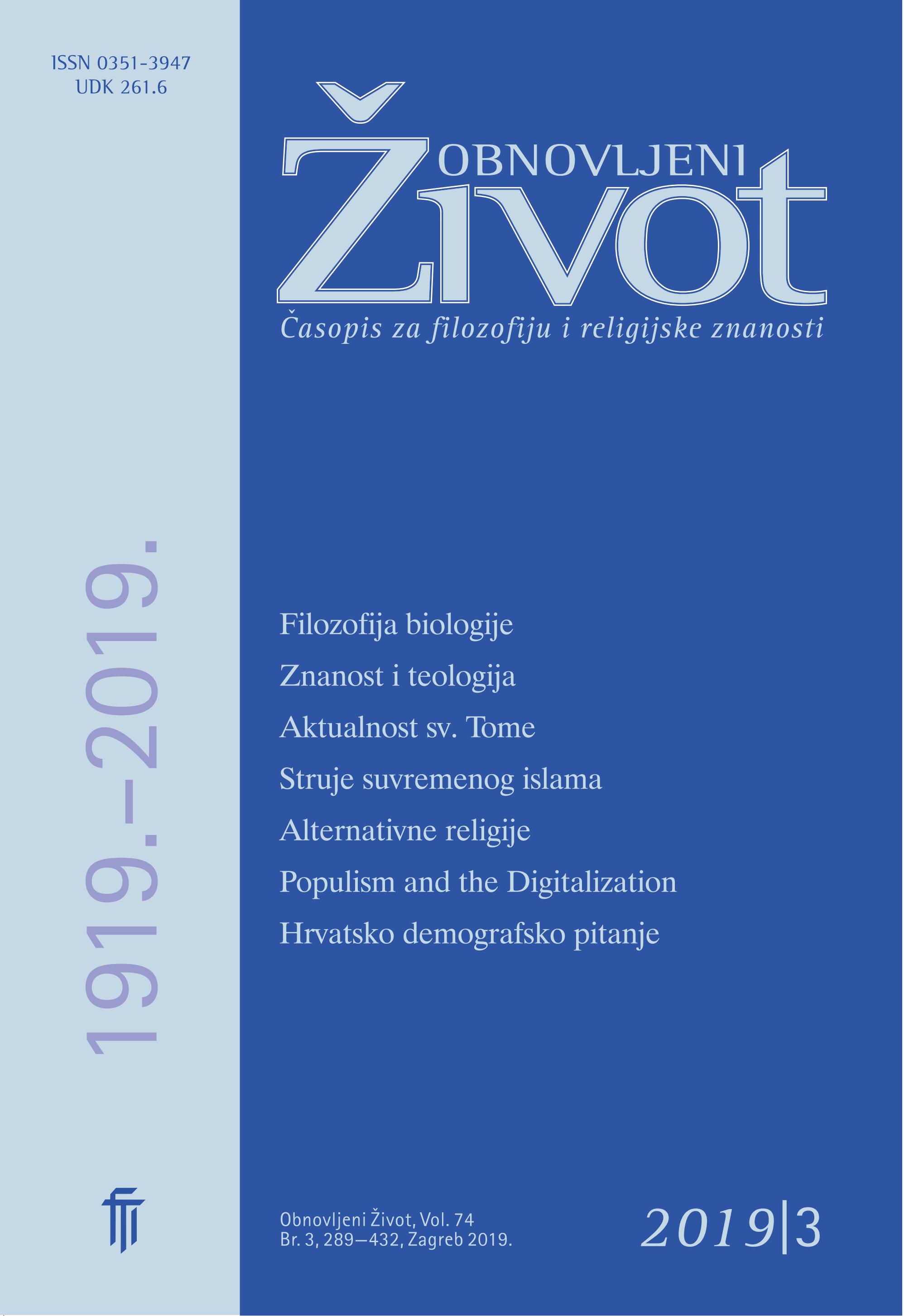The Infeasibility of Cross–Breeding Humans with Anthropoid Apes
Keywords:
philosophical anthropology, philosophy of biology, genetic reductionism, hybrid, morphologyAbstract
On the basis of the perspectives of the philosophy of biology and the philosophy of
anthropology, this paper claims that, in principle, hybrid offspring between anatomically
modern humans and their closest genetic relatives from the anthropoid monkey
species is not feasible. However, possible anthropological, moral and ideological implications
and arguments linked to the (in)feasibility and attempts at hybridization
are not the focus of this paper. The successful hybridization of two different species
assumes their genetic and morphological likeness, i.e. a close genealogical relationship.
The author believes that there exist genetic and morphological facts that point
to the general infeasibility of such hybridization as follows: 1) contemporary scientific
knowledge claims a smaller genomic similarity between the two species than was
previously thought, and the position of genetic reductionism is weakened; and 2) the
morphology of the two species is only apparently similar as they are actual ly substantively
different. A hybrid between these two species is neither logically nor ontologically
possible, because it would have to combine the contradictory morphological
characteristics of man and animal, namely, specialized animal and non–specialized
human characteristics. The human species is also, among its other traits, biologically
unique.
Downloads
Published
Issue
Section
License
Jednom prihvaćeni članak obvezuje autora da ga ne smije objaviti drugdje bez dozvole uredništva, a i tada samo uz bilješku da je objavljen prvi put u Obnovljenom životu. Uredništvo će obavijestiti autora o prihvaćanju ili neprihvaćanju članka za objavljivanje.
Članci objavljeni u časopisu se, uz prikladno navođenje izvora, smiju besplatno koristiti u obrazovne i druge nekomercijalne svrhe.


